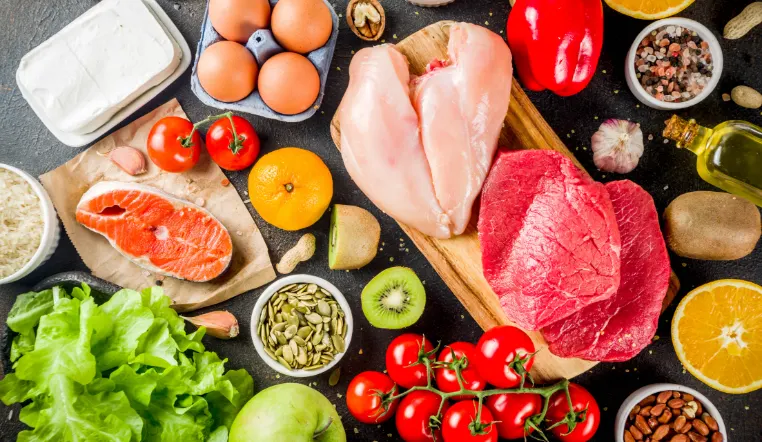After a long, cold winter, warm weather has finally arrived in Central Ohio! If you are like most seniors and caregivers, too many snowy days led to a lack of exercise and too much indulging in comfort foods that aren’t very healthy. We thought the month of June would be a great time to help you build a healthier lifestyle.
Our Change Your Life this Summer series will focus on nutrition, exercise, important prevention screenings and the health benefits of having an active social life. We hope you will follow along and share this information with family and friends.
Nutritional Needs Change as You Age
You’ve been hearing it since childhood. Eat your veggies. Drink your milk. Healthy eating habits are even more important as you age. As you get older, what your body needs to stay fit changes. While a decrease in physical activity often means you need fewer overall calories, you might need to increase your intake of some vitamins and minerals. For example, older adults are at increased risk for vitamin D deficiency. That generally means you should increase your vitamins B12 and D intake, as well as your calcium.
Determining what your personal nutritional needs are is a great discussion to have with your primary care physician during your next appointment. They might want to order blood work to see if you are vitamin D deficient, low in iron, or anything else.
Four Tips to Improve Your Diet this Summer
To help our senior friends and caregivers in the Columbus area improve your diet this summer, we’ve pulled together four easy tips to get started:
1. Adopt the DASH diet or the Mediterranean diet. Both of these lifestyles rank high with nutritionists and physicians. They are rich in vitamins, nutrients, and minerals because they are plant-based. Each also encourages low consumption of red meat and higher intake of omega-3 rich fish such as tuna and salmon. Olive oil is the primary cooking base.
2. Make your plate look like a rainbow. This is one of the easiest tips to evaluate how balanced your diet is. Your goal should be to eat between five and seven fruits and vegetables a day. You will want to incorporate fruits and vegetables ranging from dark green vegetables to bright orange fruits.
3. Have a cup of Joe. Coffee has earned some bad press over the years. More recent studies have shown that the bad reputation isn’t really deserved. Some Alzheimer’s studies have actually shown that drinking one or two cups of coffee a day may prevent the brain inflammation commonly linked with Alzheimer’s. Before you race off to Starbucks though, consider other health conditions and medications you may be taking. Cardiologists often restrict heart patients’ caffeine intake.
4. Lock up the salt shaker. For many older adults, this is one of the hardest habits to break. But the link between salt and sodium and hypertension has been proven time and again. Instead of using salt when you are cooking, try fresh or dried herbs and spices. Another tip is to keep the salt shaker in the cupboard and not on the table. That will keep you from automatically reaching for the shaker.
Two great resources for learning more about senior nutrition are MyPlate and MyFoodPyramid from Tufts University. Both were developed by researchers especially for older adults.
How are you planning on changing your diet this summer?



